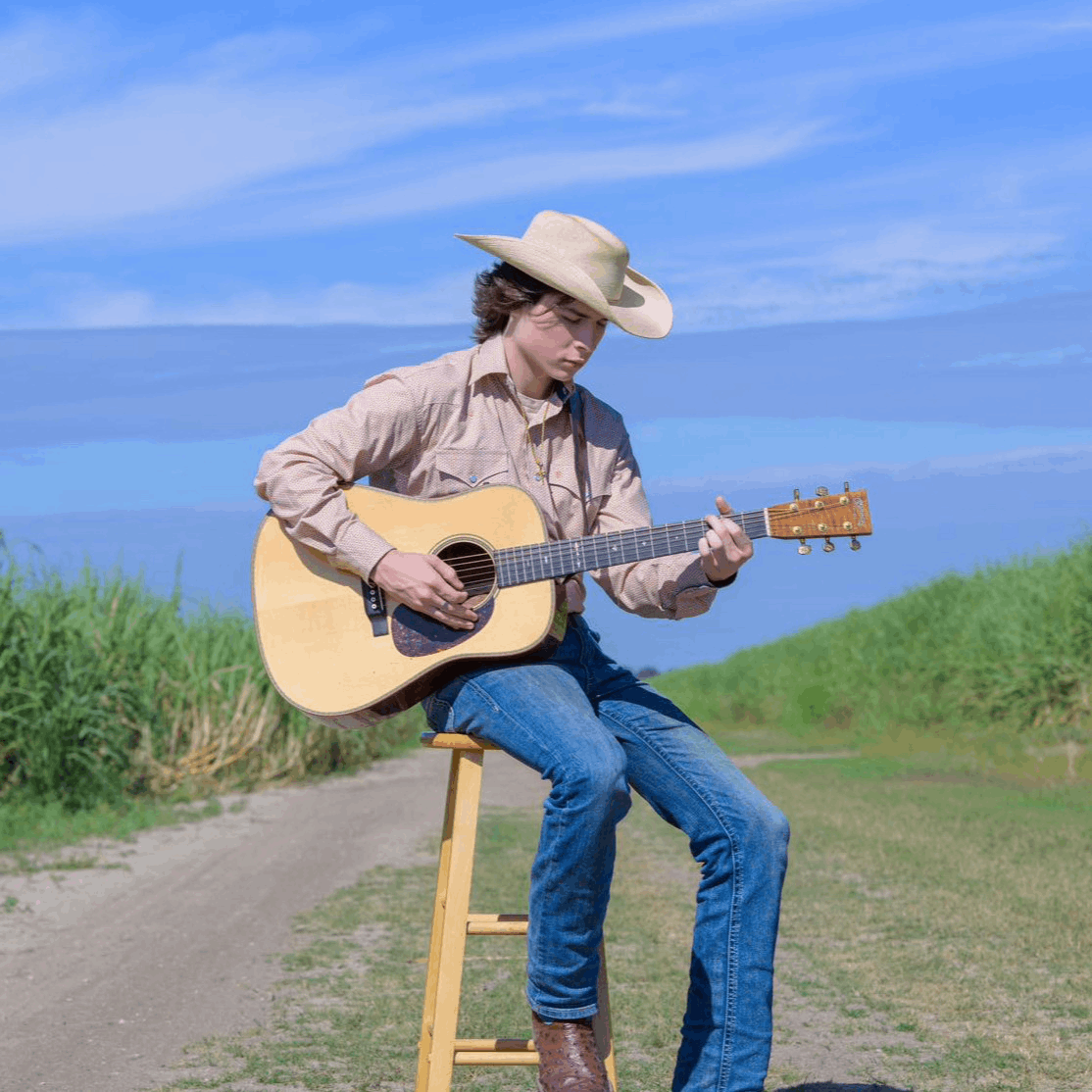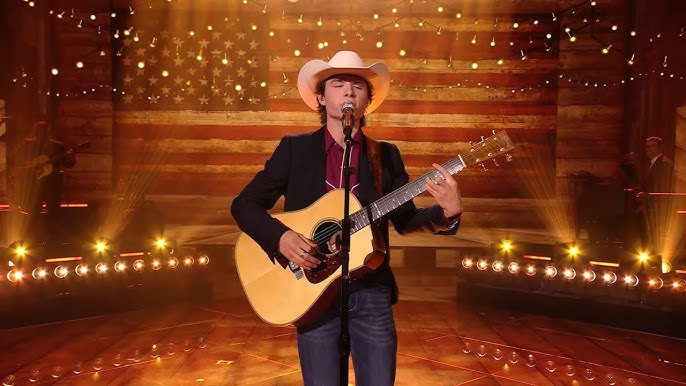Last night in Nashville, music fans gathered expecting another powerful performance from John Foster, the American Idol winner whose voice and stage presence have captivated audiences across the country.
What they did not expect was to witness a moment that would ripple far beyond the concert stage and into the national conversation about unity, resilience, and the meaning of grace under pressure.

In front of a sold-out crowd of 25,000, Foster faced an unexpected disruption: anti-American chants that rose from a small group near the stage.
What followed was not confrontation, not anger, not retreat—but an act of quiet defiance that transformed the entire evening into something unforgettable.
Midway through the set, the energy in the arena was electric.
Fans sang along, waved flags, and cheered for the hometown-like atmosphere that Nashville, the heart of country music, always brings.
Yet suddenly, the mood shifted.
A pocket of the crowd began chanting slogans that clashed with the spirit of the event—anti-American words shouted loudly enough to cut through the music.
For a split second, confusion rippled across the audience. Some fans jeered back. Security began moving toward the disruption.
Everyone looked to Foster, waiting for his response. Would he shout back? Would he stop the show?
Would he leave the stage in protest?
Foster chose none of those options.
Instead, he took a deep breath, lifted the microphone slowly, and began to sing—softly at first.
The song was not one of his chart-topping hits, not a ballad from his album, not even something on the night’s setlist.
It was “God Bless America.”
At first, the arena fell silent.
His voice, steady and unshaken, carried through the speakers, filling the stillness with something far more powerful than anger: calm determination.
Within seconds, the audience understood. One by one, voices joined in.
By the end of the first verse, the entire crowd of 25,000 was on its feet, belting out the patriotic hymn.
Flags waved high, tears streamed down faces, and even those far from the stage felt the weight of the moment.
The chants had vanished, drowned out not by hostility, but by harmony.
Witnesses describe the sound as thunderous, the kind of collective roar that shakes the rafters and lingers in memory.


